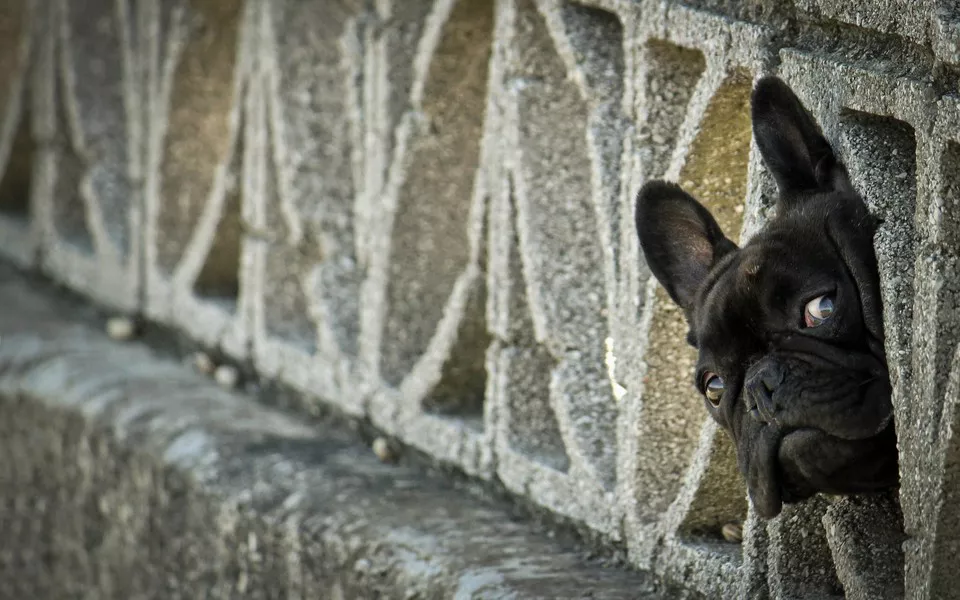French Bulldogs are known for their friendly and gentle personalities. However, like all puppies, they can go through a biting phase. This is especially true during the teething period, when their gums are sore and they’re looking for something to chew on.
If your French Bulldog is biting, don’t worry, you’re not alone. There are a number of things you can do to train your dog not to bite.
1. Understand Why Your French Bulldog Is Biting
The first step to training your French Bulldog not to bite is to understand why they’re doing it in the first place. There are a few possible reasons:
Teething: Puppies’ teeth are coming in, and their gums are sore. They may bite to relieve the pain.
Play: Puppies often bite during play. They don’t mean to hurt you, but they’re still learning how to control their bite strength.
Dominance: Some puppies bite as a way to assert dominance. They’re trying to show you who’s boss.
Fear: If your puppy is feeling scared or threatened, they may bite as a way to defend themselves.
Once you understand why your French Bulldog is biting, you can start to address the underlying issue.
2. Teach Your French Bulldog Bite Inhibition
Bite inhibition is the ability to control the strength of your bite. Puppies learn bite inhibition from their mothers and littermates. When a puppy bites too hard, the other puppies will squeal or yelp. This tells the puppy that they’ve hurt the other puppy, and they need to be more gentle.
If your French Bulldog didn’t learn bite inhibition from their mother or littermates, you’ll need to teach them yourself. Here’s how:
The yelp method: When your puppy bites you, yelp loudly in a high-pitched voice. This should startle your puppy and make them realize that they’ve hurt you.
The time-out method: If your puppy bites you, immediately put them in a time-out. This could mean putting them in a crate, a room by themselves, or even just turning your back on them for a few minutes.
Redirect the behavior: If your puppy starts to bite, redirect their attention to a toy or chew bone. This will teach them that biting is not the only way to get attention.
3. Be Consistent
It’s important to be consistent with your training. If you only correct your puppy’s biting sometimes, they won’t learn what you’re trying to teach them. Be sure to yelp, give time-outs, or redirect your puppy’s behavior every time they bite.
4. Use Positive Reinforcement
Positive reinforcement is a powerful training tool. When your puppy behaves the way you want them to, be sure to praise them and give them a treat. This will help them associate good behavior with positive consequences.
5. Be Patient
It takes time and patience to train a puppy not to bite. Don’t get discouraged if your puppy doesn’t learn right away. Just keep at it, and eventually they’ll get the hang of it.
6. Get Professional Help
If you’re having trouble training your French Bulldog not to bite, don’t be afraid to get professional help. A certified dog trainer can help you assess the situation and develop a training plan that’s right for your dog.
Conclusion
Training your French Bulldog not to bite takes time, patience, and consistency. But it’s definitely possible. By following the tips above, you can help your puppy learn bite inhibition and become a well-behaved member of your family.
Additional Tips
Make sure your puppy has plenty of chew toys to keep them occupied. This will help prevent them from biting out of boredom or frustration.
Supervise your puppy closely when they’re around children. Children can be unpredictable, and they may accidentally provoke your puppy.
If your puppy bites someone, don’t punish them. This will only make them afraid of you and more likely to bite again. Instead, calmly remove your puppy from the situation and give them a time-out.
With patience and consistency, you can train your French Bulldog not to bite. And once they learn bite inhibition, you’ll be able to enjoy many years of happy and playful companionship.


